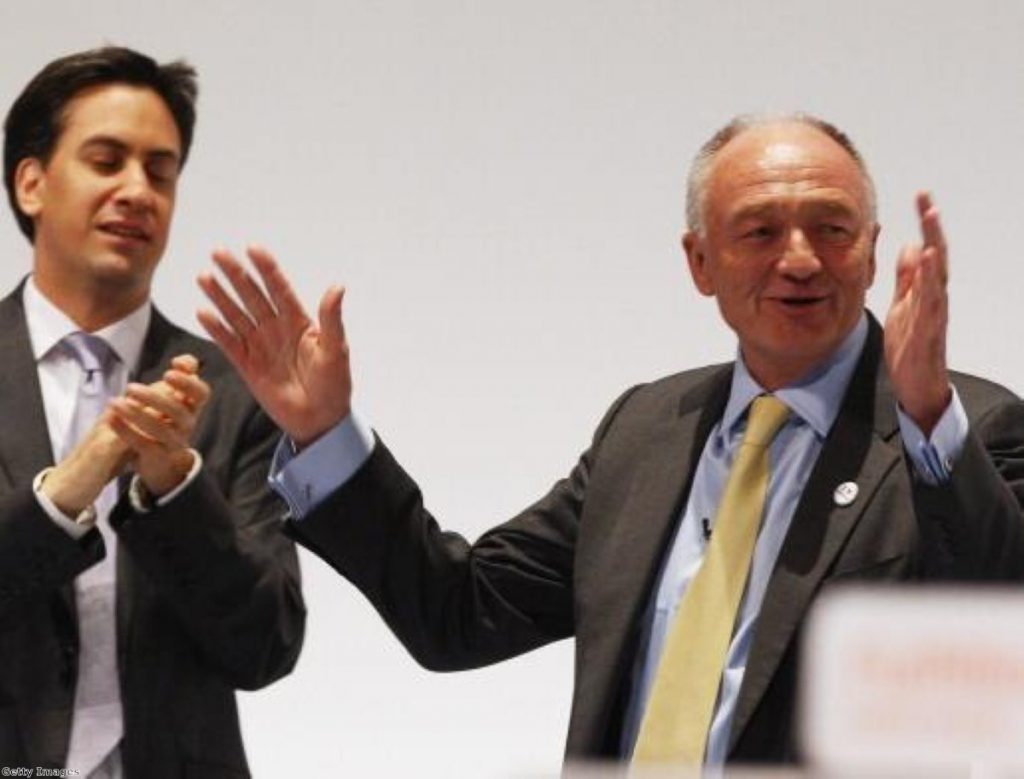Profile: Ken Livingstone
There are politicians with track records. And then there is Ken Livingstone.
He is, first and foremost, a man with a past. Ken has been the single most significant politician on the London stage for the last three decades. He led the Greater London Council for five years from 1981, earning the soubriquet 'Red Ken' in the process. Labour's left-wing was firmly in control at the start of Ken's reign and remained thoroughly antagonistic towards Margaret Thatcher's government throughout. They got their own back, abolishing the GLC outright in spring 1986.
Ken was more prominent in the Labour party than in London in the years that followed. He was a backbench MP for four years until 1991 and beat Peter Mandelson to the party's national executive committee, before defying the party in 2000 as it sought its candidate for the first mayoralty.
We all know what came next. After being expelled from the Labour party and then beating its candidate, Ken Dobson, for eight years Ken was in charge of London once again. He made the mayoralty his own, dominating City Hall in his own inimitable way. Defeat to the Conservatives' Boris Johnson in 2008 appeared a career-ending setback, but Ken spent the next four years paving the way for what he hoped would be yet another return to power in 2012.


One thing Ken's struggles with Boris have taught us is the importance of personality in any kind of mayoral election, a factor likely to be increasingly significant in British politics as more mayors, and police and crime commissioners, establish their power bases.
Ken has always been his own man, of his party but never defined by it. "I hate the Tories" might be his favourite saying, but he has never been afraid to take on enemies from within either. The manoeuvring that first brought him to power in 1981, when Labour lefties built a power base that allowed him to take over from the more centrist Andrew McIntosh, taught him a lesson he would never forget. In City Hall he fought Labour over introducing public-private partnerships for the Underground. Eventually, when it became clear Ken was likely to win a second term in 2004, Labour patched things up. The scars might be covered up now, but they remain.
If Ken has had one loyalty over the years, it has been to 'hard-working Londoners'. The poor of the capital have been defended throughout. From the 1980s against Thatcher – when County Hall opposite the Thames from parliament was covered with a billboard stating London's rising unemployment – to the current mayoral campaign, when his rhetoric has been against the coalition's cuts, he has been a committed campaigner. And it shows: on the streets of London today, Ken's relaxed, familiar demeanour continues to win over those whose votes he wants most of all.
Londoners have not always been convinced, though, for sometimes Ken's meandering activities have cast doubt on his commitment to them. The extremely controversial congestion charge generated intense unpopularity among some sections of the population. So did his more unorthodox interests, including political flirtations with Venezuela's firebrand Hugo Chavez or the strange spending patterns under Lee Gasper at City Hall.
Gaffes haven't helped either. In 2006 he was suspended for four weeks for comparing a Jewish Evening Standard journalist to a Nazi concentration camp guard. By 2012 his questionable tax arrangements were the focus of intense Tory attacks.
It is the somewhat bewildering array of personal details – his love of newts, his 2009 marriage to his long-term partner and subsequent revelation that he had already had three children with two other women, his penchant for hosting chatshows – that makes this candidate much more than your everyday politician. Since 1971, when he was first elected to Lambeth council, Ken has been doing politics his own way. He has been both embraced and rejected by London voters ever since.

